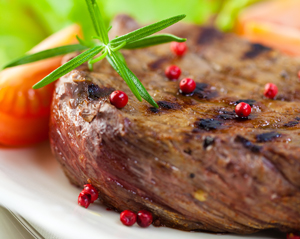 Is your diet healthy and good for you? Are you 100% sure – and if yes, how do you know?
Is your diet healthy and good for you? Are you 100% sure – and if yes, how do you know?
The world is full of information, research and advice – often confusing and contradictory. There is still no general consensus on low-carb vs low-fat: the debate rages on, and multiple scientific studies are available to support both camps.
Unless you are a nutrition scientist yourself, there is little hope of being able to form an informed opinion.
So how can you ever be sure? Who do you listen to, and how do you know if they are right?
I’ve come to think that the only way to find out what works for you is to learn how your body reacts, and become sensitive to what it’s telling you.
I learned that eating carbs makes me feel lethargic, bloated, and then hungry again very quickly. I become fixated on food and crave it all the time.
We are all different, and there are no uniform solutions to suit everyone. I am a firm believer in low-carb lifestyle because it works really well for me. But I also know several people who seem to live on nothing but carbs, and are healthy and athletic.
The only way to find out which diet works for you is to try different ones – and then note carefully how you feel and what your results are. This applies equally to choosing your overall diet “philosophy” (e.g. low-fat vs low-carb) and to choosing your specific plan (e.g. Atkins vs Dukan vs Paleo etc).
Having struggled with extra weight for most of my life, I learned through experience that low-carb is the best lifestyle for me, with multiple advantages beyond weight management. Here’s why:
Absence of hunger. This is the key point – if there were no other advantages, this one alone would far outweigh any other considerations. Any other type of diet leaves me not just hungry, but ravenous – often just a couple of hours after a meal. Trying to lose weight on a low-fat / low-calorie diet was utterly hopeless – there was just no way I could control my hunger. While low-carb dieting also requires self-discipline, hunger is simply not a factor – after several weeks, it can disappear entirely. I am no longer a slave to food!
Better digestion. Cutting out grains and sugary fruit definitely improved my digestion. Before, feeling bloated after a meal was normal. It hardly ever happens on a low-carb diet.
Consistent energy levels. Once your body gets used to running on fat instead of glucose, energy levels actually go up – and they are more consistent. Carbs tend to give you a quick boost, which is then inevitably followed by a slump. If I deviate from my low-carb diet, I can really notice the difference.
More natural food. Most processed foods do include sugars in some form – so you have to cut them out to comply with low-carb guidelines. This results in eating less additives and preservatives – an additional benefit. Manufactured low-carb snacks and bars can include artificial sweeteners and all sorts of other chemicals, but I try to avoid those – they can result in increased cravings for real carbs. The sweetener I tend to use is Stevia which is a plant extract (but even then, it’s best to think of it as an occasional treat rather than something to have every day). Overall, most of the food I eat is animal proteins and fat (meat, poultry and fish) and vegetables.
So my advice overall? No one in the world knows your body better than you do – so conduct your own n=1 experiments with yourself as the only subject – and figure out what works for you.